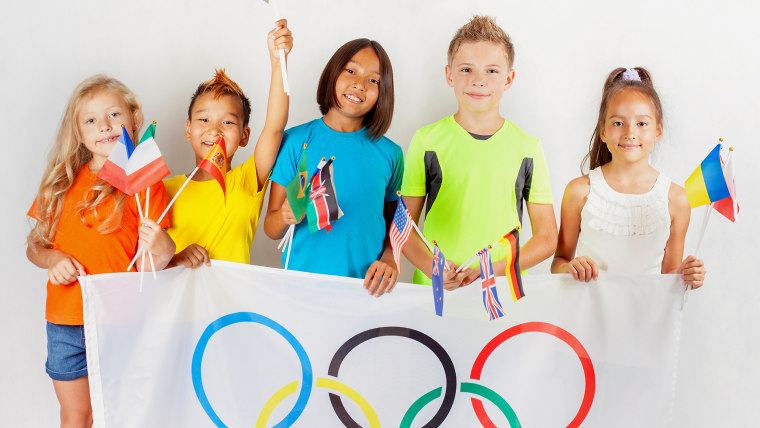A friend pointed out to me recently that her kids are the ages of a lot of the Olympic athletes. And that, inevitably, led her to the question: "Could my kids EVER have done something like this?"
Like most of us, she'd know if her kids had a sport or skill at which they truly excelled. But what she meant was, "Could my kids dedicate themselves to something so completely, and persevere and sacrifice for it?"
One goal of most parents is to see their kids excel. Whether in academics, music, sports, or any other area, we search for ways to help them reach their full potential. And we strive to do this without driving them — or ourselves — up the wall in the process. So what's the trick? How can we get a child or teen to show dedication, push through the hard parts and shine at something?

1. We can't pick the thing.
Much as you may see a spark in your child, an ability that you want to nurture and grow, if your child doesn't have the passion it won't work. At most, you can suggest it to them. Don't be shocked or offended if your child doesn't long to take the path that you can so easily picture.
2. Praise the effort, not the ability.
It seems logical that complimenting your child's singing voice will build their desire to work hard at voice lessons or choir. Unfortunately, most kids' brains don't work that way. When we compliment something they can't control — like innate athleticism or intelligence or singing voice — they think "This is as good as it gets, what if it's not as good as she says?" So instead, admire (out loud) the work your child puts in. "I'm impressed by how much you've improved." "That song is sounding excellent, what have you been working on?"
Related story: Olympic moms tell what Team USA swimmers were like as kids
3. Ask about motivation.
A mistake I often make is lecturing my child about why he should try hard. Doesn't that sound fun? Yeah ... nope. But motivation matters. So instead of telling, ask. Ask your child why she is involved in the activity. Ask what she thinks about when it's hard or painful or boring. The next time she lacks that motivation, you won't have to tell her what you think she should focus on, you'll be able to just remind her of her own strategies.
Never miss a parenting story with TODAY’s newsletters! Sign up here
4. Don't try to make it fun.
What? I know, from the time our kids are tiny, we try to make the unpleasant a little more palatable. We turn the mushy vegetables into an airplane. We count the cars we're stuck behind in traffic. We sing songs to make handwashing go faster. The problem is, we're convincing kids that they should never be bored. Never have to push through repetition and annoyance in order to reach a goal. What an unrealistic expectation!
5. Keep it all in perspective.
Most kids don't win hard-to-reach awards, go pro, or end up on national TV. Even knowing that, we involve them in activities, pay for lessons and equipment and schlep them to instructors and practices. Why? Because we know that there are so many valuable lessons to be learned by participating. So remember your motivation for involving your child in this activity in the first place, and make sure it isn't just to win.
Whatever these young people in our lives eventually pursue, they're going to need those skills my friend asked me about. They will need to dedicate themselves, to persevere, even to sacrifice. Teaching those skills to our children is far more important than shepherding them to the Olympics. In this way we can save our sanity and still shepherd them towards success.
Next time you watch a young person attempt something phenomenal, remember that we can all be Olympian parents.